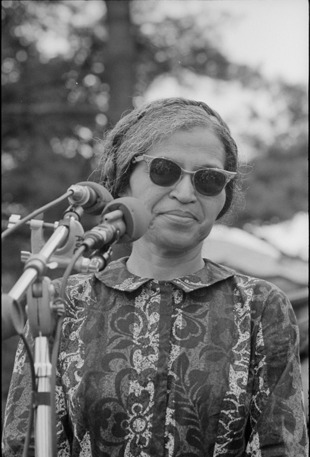The Montgomery bus boycott began after Rosa Parks (1913–2005) was arrested for refusing to surrender her seat to a white person. Parks was one of several Black residents of Alabama's capital city arrested in 1955 for violating the local Jim Crow laws concerning racial segregation of public transportation. The boycott was organized by the president of the local NAACP chapter, E. D. Nixon, along with other local leaders including Ralph Abernathy and the new pastor of the Dexter Avenue Baptist Church Dr. Martin Luther King, Jr. The boycott lasted more than a year and was ultimately successful. Many in Montgomery’s Black community avoided public transit in favor of carpooling, walking and other forms of transportation. Boycotters faced arrest, beatings and even firebombings.
The resulting press coverage helped bring the issue to national attention, and Dr. King became recognized as a leading figure in the civil rights movement. The boycott ended after Montgomery’s racial segregation of public transportation was declared unconstitutional in US District Court. The plaintiffs in the case Browder v. Gayle, including Claudette Colvin, Susie McDonald, Mary Louise Smith, and Aurelia Browder, were all local Black women arrested in 1955 for not giving up their seats to white people.
